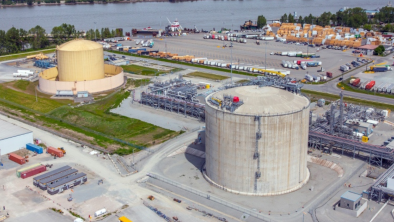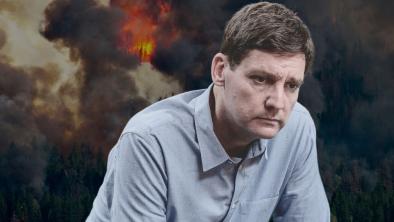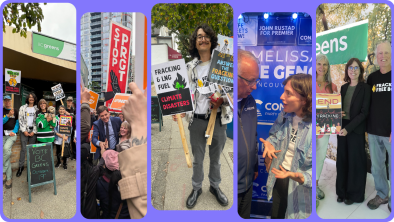Public inquiry needed to address health & environmental risks of fracking

The BC Government should follow the lead of other provinces, US states and the EPA in launching a public inquiry into the threats posed by an expanding shale gas industry, a number of prominent BC environmental groups say.
“Given the growing concerns associated with contaminated waterways and dangerous migrations of deadly gas associated with shale gas developments, the time has come for the province of British Columbia to conduct a full public inquiry into the environmental and social impacts of the shale gas industry,” says Will Koop of the B.C. Tap Water Alliance.
The Alliance has made a formal request for an inquiry in a letter sent on April 13th to Energy and Mines Minister Rich Coleman, Environment Minister Terry Lake, and Forest, Lands and Natural Resource Operations Minister Steve Thomson. It is supported in its call by the Wilderness Committee, the Council of Canadians, Sierra Club of BC, Georgia Strait Alliance, and Dogwood Initiative, with many more organizations expected to endorse the petition.
The call follows an earlier request by citizens living in the midst of shale gas industry activities in northeast B.C. for a formal public inquiry under the provincial Health Act to address the public health and safety risks associated with “sour” gas - natural gas containing hydrogen sulphide, a potentially deadly toxin. Some sour gas leaks in northeast B.C. have been associated with the controversial gas stimulation technique, hydraulic fracturing or fracking, which is commonly used by the shale gas industry.
Last year, the province of Quebec held a public inquiry into proposed shale gas developments. It released an initial report in February 2011, and currently has a quasi-moratorium in place banning shale gas developments pending further study. The province of Nova Scotia has signalled its intention to hold a similar inquiry process.
In the United States where hydraulic fracturing operations have resulted in contamination of well waters and aquifers, many State agencies are holding similar reviews and a thorough public review by the federal Environmental Protection Agency is underway.
The B.C. Government has so far resisted doing anything similar.
“We are concerned with the province’s indifference to this issue. Despite calls from its own Ministry of Environment staff to conduct cumulative environmental assessments of gas industry activities in northeast BC since 1991, the government has failed to do so,” Koop says. “Given the impacts on our environment, human health and significant increases to greenhouse gas emissions over an area that represents about 15 percent of BC’s land mass, we believe the government should immediately implement a rational public review and planning approach to energy developments in B.C.”
“I am very concerned about the impact of fracking on human health, from the use and disposal of chemical toxics from drilling fluids to fracking processes with water, and the release of deadly gases,” said Ben West,Healthy Communities Campaigner for the Wilderness Committee. “To make things worse, increasingly it seems that some of these projects are meant to provide natural gas to the tar sands to facilitate increased extraction of dirty oil. These fracking projects should be stopped until we take a long hard look at them.”
For more information contact:
Will Koop, Coordinator, B.C. Tap Water Alliance: 604-224-4717
Ben West, Wilderness Committee: 604-683-8220
Read the full text of the joint leader
For more infromation visit the BC Tap Water Alliance's website


